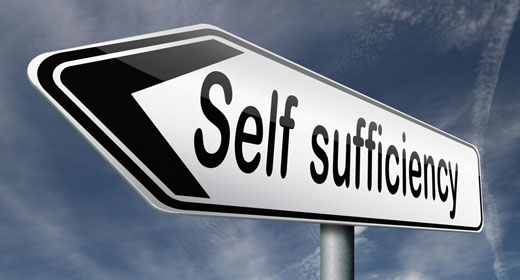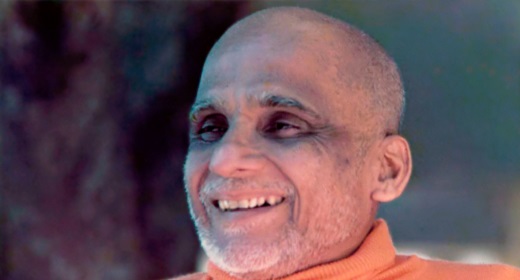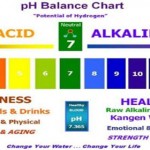By Steve Taylor PhD: Self-esteem can be very fragile, unless it’s underpinned by self-sufficiency. A few months ago on this blog, I wrote about slighting – about why human beings are so vulnerable to feeling disrespected, and how perceived disrespect can cause severe psychological pain and even lead to violence in retaliation. Typical slights include not being invited to a party which everyone else you know is going to; giving a person a lift or a meal and not being thanked in return; being passed over for promotion.

In the blog, I mentioned that feeling slighted is the cause of a great deal of violent crime, including a high percentage of murders. One of the reasons why alcohol is so strongly linked to crime is because of its ‘self-inflating’ effect – it makes people feel more special and important, and so increases their sensitivity to slights.
But even without alcohol, research shows a link between violent crime and high self-regard. Although low self-esteem is often associated with criminality, people who have very high self-regard – together with a low opinion of other people – may be narcissistic, lack empathy and respond aggressively to slights.
This points to a problem with the concept of ‘self-esteem’, which I would like to ‘float’ a possible solution to.
No one would doubt that self-esteem is beneficial, that people with low self-esteem suffer from psychological difficulties and tend to struggle through life, and that higher self-esteem generally equates with greater psychological health. However, this only applies to self-esteem when it is secure, and doesn’t depend on constant reassurance from others. It’s when self-esteem is insecure – so fragile that it’s easily threatened – that it can lead to violence.
This suggests to me that there is a further aspect of the self which needs to be considered, one which is implied but not fully embraced by the concepts of ‘secure’ and ‘insecure’ self-esteem. This is the concept of self-sufficiency.
The Qualities of Self-Sufficiency
‘Self-sufficiency’ is the quality of feeling secure and content with oneself, a deep-rooted sense of inner completeness and stability. On a superficial level, it’s similar to ‘secure self-esteem’ – it’s an estimation of oneself as a worthy and decent person. But it goes deeper than secure self-esteem, in that it’s not just a cognitive but also an affective state – that is, it’s a feeling of fundamental wholeness and well-being.
Rather than thinking in terms of ‘high’ or ‘low’ – as with self-esteem – it seems more appropriate to use the terms ‘weak’ and ‘strong’ for self-sufficiency. People with strong ‘self-sufficiency’ aren’t too concerned with other people’s opinions of them. Slights don’t affect them so much, because they have a deep-rooted sense of their own worth. Conversely, praise and blame don’t affect them too much either, so that they never become too carried away with their own good fortune or self-importance.
The same applies to negative or positive life events: people with strong ‘self-sufficiency’ are less likely to be de-stabilised by them. This doesn’t mean that they’re inhuman monsters who don’t feel any emotion, just that they have a strong internal ‘centre of gravity’ which means that they’re likely to be stoical and philosophical about negative events, and to bounce back quickly. Their inner sense of well-being and completeness means that they’re more resilient to the vicissitudes of life.
‘Self-sufficiency’ is associated with certain traits. ‘Self-sufficient’ people have a strong internal ‘locus of control’. That is, they have the ability – and the desire – to determine their own course, to make their own decisions, rather than having their life choices made my others. They trust in their own instincts, and are prepared to go their own way, even if it means going against the expectations of others, and so facing incomprehension and ridicule.
‘Self-sufficient’ people are authentic. They tend not to play roles, or to be dishonest or misleading just to please. Their inner stability and wholeness means that it’s not so important for them to gain affirmation or respect from others, so they may be prepared to risk being disliked by speaking truthfully. If you show them a poem or a painting and ask them, ‘What do you think?’ be prepared for them to give an honest assessment. Fundamentally, they’re not so interested in trying to impress other people, and so it’s possible for them to be more authentic.
And in terms of their lifestyles, self-sufficient’ people are happy with their own company. They may be social and sociable to a normal degree, but they also enjoy solitude. Whereas some people find solitude and quietness difficult to endure, and use diversions and distractions (like the Internet or television) to avoid them, self-sufficient people are perfectly happy to be alone with themselves. And because of their inner stability and wholeness, they’re less likely to seek the compensations of material goods and status. They’re less likely to need expensive possessions to feel good about themselves, or to seek fame or power to make themselves feel more significant.
Egocentric Self-Sufficiency
However, as with self-esteem, there are potentially negative aspects to self-sufficiency. There is a danger that self-sufficiency can involve a disassociation from others. Some self-sufficient people may become so self-immersed and self-contained that they behave selfishly, without taking account of the needs of others. This might be called ‘detached self-sufficiency’ or ‘egocentric self-sufficiency’, and be contrasted with the healthier mode of ‘engaged self-sufficiency’, in which one experiences a strong sense of connection to others, and a strong sense of empathy and responsibility.
Let me emphasise again that self-sufficiency doesn’t usually mean becoming cold and detached. Research has shown that people who suffer with depression are less altruistic than others, probably because they are more self-preoccupied. And the opposite is generally the case with self-sufficient people. Since they’re less preoccupied by worries and anxieties, they’re more able to connect with others, and more likely to respond to their distress.
There are many other important areas which could be followed up here. For example, what factors determine a person’s level of self-sufficiency? Why do some people develop weak self-sufficiency, while others strong?
It’s likely that, as with self-esteem, there is a strong like to childhood experiences. People who have suffered abuse and trauma during early childhood are likely to have weak self-sufficiency.
Is there a connection self-sufficiency and age? Observation suggests that old people are more self-sufficient than the young. In young people, the sense of identity is in the process of being formed, and is therefore fragile. That’s why young people often have an impulse to join gangs or to follow fashions.
I would not for one moment claim the concept of ‘self-sufficiency’ as novel or revolutionary. It features in many of the world’s great spiritualtraditions, going back 2500 years or more. The great Hindu spiritual text, the Bhagavad–Gita, describes the spiritually awakened person as being ‘beyond both praise and blame, whose mind is steady and quiet’ and also ‘the same in pleasure and pain; to whom gold or stones or earth are one, and what is pleasing or displeasing leaves him in peace.’
However, I feel that this concept should become important in psychology too, and be seen as an essential prerequisite of overall well-being. Self-esteem should be like a tree, deeply rooted in self-sufficiency, otherwise it will be fragile and unstable.
Note: At the moment, I am piloting a ‘self-sufficiency’ questionnaire, which I will share when it’s ready.








































